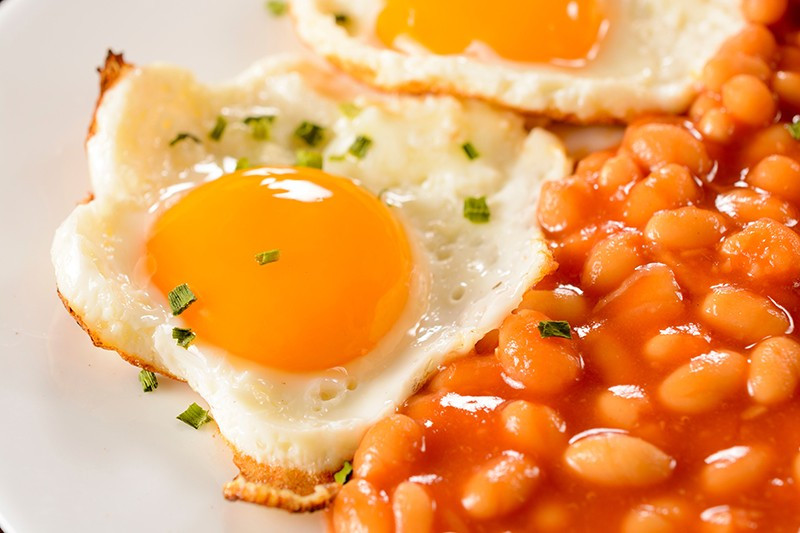Foods and blender concoctions packed with proteins were once thought to belong solely to the domain of bodybuilders and elite athletes. Not anymore/ All the rest of us are quickly finding out that foods high in protein can work wonders for the overall health of the common man and woman, as well. Food marketers and stores have caught on, and now the rest of us can go grocery shopping looking for and finding protein-packed consumables suitable for almost everyone. As webmd.com puts it, It's easy to understand the excitement. Protein is an important component of every cell in the body. . . . (It) is an important building block of bones, muscles, cartilage, skin and blood. And get a load of this, too: not only is dietary protein an indispensable substance for muscled-up men and women desiring that chiseled, bulked-up look, it also is a key ingredient for those of us eager to get on a weight-loss program.
Protein Has Weight-loss Value
That's right; nutritionists are now getting the word out that if you are serious about losing weight, you need to get serious about incorporating sufficient amounts of protein into your diet. Clinical studies have demonstrated that high-protein diets tend to not only satisfy hunger quicker than high-fat or high-carbohydrate diets, but they also take in fewer calories, thus contributing to the weight loss often seen with high-protein diets, per webmd.com.What Exactly Are Proteins?
Proteins have been characterized as extended chains of amino acids, which can be found in many kinds of foods, to include vegetables, and which are molecules essential to our metabolic processes, acquired from what we eat. For instance, per draxe.com, several amino acids – namely glutamine, arginine and glycine – play a role in breaking down, transporting and storing all nutrients, including fats, carbohydrates, vitamins, minerals and water, in addition to, of course, proteins themselves. Our bodies are limited in their ability to manufacture amino acids on their own, so it's up to us to pick out and consume all the rest of the essential amino acids we need to function properly. In the case of bodybuilders, it is not the protein itself that builds more muscle – that can only be done through the proper exercises and weight-room routines. Toward that end it is the protein in action that allows our bodies to function properly to be able to do the intense exercises and weight training. Even if you aren't a bodybuilder or a serious athlete, you need proteins in your daily diet. For women, the target is generally considered to be 50 grams a day; for men, 60 grams. How can you tell if you have a protein deficiency? Following are some of the symptoms that might indicate a protein shortage in your body, per draxe.com:- Low energy
- Mood swings, anxiety
- Sluggish metabolism
- Trouble concentrating
- Fluctuating blood-sugar levels
- Poor sleep
- Difficulty losing or maintaining weight
- Gassiness or constipation
Constructing a High-Protein Diet
Before putting together a high-protein diet for yourself by randomly reading food labels and winging it on your own while pushing a grocery cart and tossing assorted protein sources into it, it would be best for your long-term health to get your physician or at least a licensed nutritionist on your side, guiding you along the way, helping to pick and choose your way to a healthy high-protein diet. Here are some tips and suggestions to help get you started:- Eat eggs. Protein and eggs have always gone well together in the same sentence. Eggs are a great source of protein, providing about six grams per egg, per foodnetwork.com. Scrambled, hard boiled, sunny side up – you name it, eggs work in almost every consumable form conceivable.
- Tofu. If you're a hearty meat lover, this might not hit your radar, but it's a great option for vegetarians. Figure on 8 to 10 grams of protein per half-cup of tofu. Other soy foods such as edamame also work well; edamame not only gives you 17 grams of protein per cup, it also provides eight grams of fiber.
- Fish and shellfish. Two or more 3.5-ounce servings of fish a week is what the American Heart Association recommends, and the likes of light tuna and Alaskan-caught salmon are a great place to start.
- Beans and other legumes. Beans contain more protein than any other vegetable protein, per webmd.com. They're also loaded with fiber and will make you feel fuller quicker, perhaps opening the door for you to lose weight.
- Nuts. Like fish, nuts make a lot of healthy-food lists for a variety of reasons. In the case of protein, consider this: one ounce of almonds provides six grams of protein – the same as one ounce of broiled ribeye steak, also per webmd.com.
- Pork. Pork??!! Yes, but don't overlook it. Pork is full of protein and goes easy on the fat – nice combination.
- Low-fat dairy. Milk, cheese and yogurt fit the bill here while also providing plenty of bone-boosting calcium.
- Lean ground beef. Shoot for 90 percent ore more lean. A little goes a long way -- just three oounces delivers 22 grams of protein, nearly a half-day's worth of the protein an adult needs, per foodnetwork.com.

